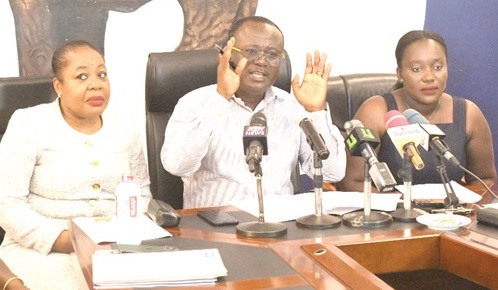
Potential Pitfalls of the NPP’s 2026 Presidential Primary
Democratic activities like voting are not always a competition between two opposing political parties.
It is sometimes between contestants from the same political party.
That is because, for certain party positions, a contest is needed to decide who is best positioned to hold that elected office.
Let me reiterate my position on internal party contests. I don’t like them.
My dislike for them is not jurisdiction-specific. Whether in the land of my birth (Ghana) or in the land where I live and work (United States), my feelings about primaries are the same.
I was quite upset when former President Barack Obama beat former First Lady Hillary Clinton to win the Democratic nomination for the 2008 election.
And I was even more upset with Senator Sanders for his primary challenge to her in 2016 because, in my opinion, some of the rhetoric of the campaign weakened her during the general election.
If there were another way to select people to hold elected office in political parties, that would be my first preference.
However, I am yet to come up with an alternative to party primaries that I can articulate convincingly.
I am, therefore, left with embracing, begrudgingly, the status quo.
I have had occasion to reflect on the upcoming January 2026 presidential primaries of the New Patriotic Party (NPP).
I acknowledge that when it comes to the NPP, the competitive spirit is always alive and well during their party primaries and other internal contests.
In fact, sometimes, the internal contests become so competitive that I ask myself if the contestants and their faithful supporters are forgetting who the real political rivals are.
As a keen political observer, I can’t help but remain worried about the upcoming contest, its potential pitfalls and how the party can navigate them, especially as the date of the primary draws close.
Potential pitfalls
First is the potential of a weakened candidate for the national election.
I understand that party primaries are designed to take candidates through the ringer and select who is best positioned to lead the party.
As part of the process, one expects candidates to demonstrate their toughness, as well as their ability to withstand whatever is thrown at them, because the heat of a primary contest will pale in comparison to that of a general election. Fair point.
But depending on the narratives constructed about a candidate, and the rhetoric with which it is shared can leave whoever emerges victorious limping into the general election.
Second, and related to the above, is that when primaries degenerate, the narratives constructed end up arming one’s political rivals.
The NPP’s main political rival is the National Democratic Congress (NDC). It is not far from the truth to say that they are watching this contest with glee and saving all the material for the 2028 election. It simplifies the work needed to undertake political rival research by the NDC.
But for the NPP, how will party supporters, especially the side that does not emerge victorious, push back against narratives they themselves constructed during primaries, when it is used against the party’s candidate during the general election?
Third, what happens on the actual day of the primary?
If the competitive nature of the contest and the temperature of the rhetoric being used keep rising, will supporters be able to hold in check their political temperaments and allow for a smooth, incident-free presidential primary on January 31, 2026?
Or should the party hierarchy think pre-emptively and put measures in place ahead of the day?
Navigating pitfalls
In my opinion, the burden of steering the party through this challenging period, primarily, must fall on the national executives of the party.
I have two small suggestions.
First, it is easy to say that candidates and their supporters must recognise that while the contest is designed to select a candidate to lead the party, the real contest is between the NPP and its main political rival, the NDC.
But that is a fact that cannot be overlooked and hopefully will serve as the guiding principle as the contests continue over the next two months.
Perhaps it is a principle worth repeating to party supporters.
And this must regularly come from national party executives.
Second, all the administrative processes between now and the actual voting day must be seen as transparent and fair.
Again, in such an environment, the last impression national party executives want to create is one of favouritism.
From the compilation of the delegates' album all the way through the counting of votes on election and dealing with any infractions along the way, they must pass the fairness and transparency test with distinction.
May the remaining period be competitive but not excessively destructive to the party.
The writer is the Project Director, Democracy Project.
